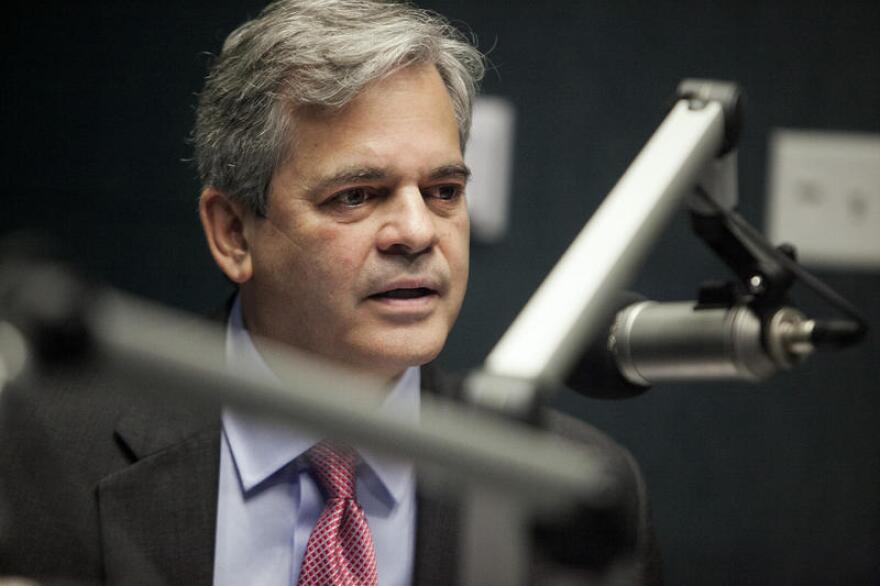Austin Mayor Steve Adler is laying out some of his priorities for the city council in the New Year.
In a post on the Council’s online message board Thursday, Adler laid out his vision around several items focused on downtown development and businesses.
He pointed to the area around Waller Creek in particular, calling for expanding a tax financing plan to pay for the development of parkland around the creek.
The Waller Creek Park would be an incredible addition to our city. It’s an exciting vision. To realize that vision, I support expanding the time period for the Waller Creek [tax increment financing] (currently in place to fund the tunnel and other flood water conveyances) to provide $100 million in bonding for the construction of the actual park and facilities.
Adler also set a goal of getting $50 million in private philanthropic support for the park.
Another priority is homelessness and changes to the Austin Resource Center for the Homeless, including finding new ways to fund homeless services there.
Rightsizing the ARCH and housing the homeless is also just the right thing to do for some of the most vulnerable among us. This could also result in a very different presence for the ARCH -- one that better promotes downtown safety and is more compatible with surrounding uses. It could be that a downtown TIF, in an area outside of the current Waller Creek TIF, might provide a source of the needed funding stream. I believe there would be support for such an effort because addressing homelessness is important to Austin. Funding it this way makes sense since focusing the mission of the ARCH should increase surrounding land values that might otherwise not be achieved.
Adler also points to proposals to expand the convention center – and how to pay for that – including the possibility of raising the hotel occupancy tax.
State law allows the city to levy up to an additional 2% above the current 15% HOT tax to fund venues such as a convention center. Realizing all or part of such an increase would provide new revenue, paid by visitors and tourists and not residents, that could shorten a construction bond amortization period. There is, understandably, some resistance among hoteliers to levy all or part of such a 2% increase because of its possible impact on competitiveness. However, it could be that this industry would support a HOT tax increase if that were instrumental in delivering the convention center expansion that the industry supports.
Other priorities Adler writes about include funding for upgrades to the Mexican American Cultural Center, funding for items that are part of the council's Music and Creative Omnibus Resolution and funding for road changes around the so-called "Innovation Zone" around UT Austin's new Dell Medical School.
Adler also raises the possibility of diverting some city property tax money toward plans to make radical changes to I-35 through downtown, such as a proposal to put part of the highway underground and build a public park on top of it.
Adler also touched on the possibility of partnering with short-term rental company AirBnb to change the way the city collects occupancy taxes from those rentals in Austin.





